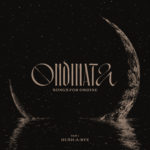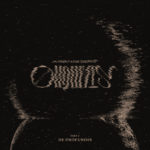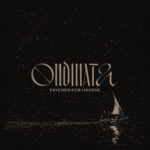Research
CCHS (central congenital hypoventilation syndrome, commonly known as Ondine’s Curse) is an orphan disease. Orphan, meaning rare. Only a few institutions globally research the disease. The Polish CCHS Foundation “Lift the Curse”, together with afsondine.org in France and the CCHS Foundation in the USA, supports the work of researchers seeking new treatments for CCHS.
Using the funds obtained from the Ondinata project, we want to support the French and American research, believing that this way we will effectively accelerate the development and approval of a drug that will mean healthy sleep and normal life for our children.
This has to work!
Collaboration with France
A team led by Professor Jeanne Amiel from the Necker Hospital in Paris was the first to identify the genetic origin of CCHS. Thanks to this discovery by the French scientists, we now know that the disease is induced by mutations within the PHOX2B gene encoding a transcription factor, that is a protein responsible for regulating other genes. A team led by Professor Jean-François Brunet of the Institute of Biology at Ecole Normale Supérieure in Paris, using tests on mice, has developed the first model to assist in understanding the cellular and molecular mechanisms involved in the disease and to test potential drugs.
Currently in France, nearly 30 scientists from renowned institutions, such as the Institute of Genetic Diseases, the Necker Hospital in Paris, Marseille Medical Genetics, Paris Descartes University, the Aquitaine Institute for Cognitive and Integrative Neuroscience in Bordeaux and Sorbonne University Laboratory, La Pitié Salpêtrière Hospital in Paris, Inserm (French National Institute of Health and Medical Research) at Robert Debré Hospital in Paris, are engaged in the efforts to decode the disease, understand its mechanisms and select a candidate drug molecule.
Among other things, the researchers are working to develop cellular and computer-based models to identify the signalling pathways involved in CCHS and the molecules that activate these pathways. There are also studies on cells and stem cell lines harvested from patients and electrophysiological studies on brain stems in mice. The ultimate goal of the research is to develop an effective drug therapy – medication to treat Ondine’s curse.
This work is coordinated by a start-up called AtmosR, founded in 2019 by patient families and researchers convinced that in a few years’ time, a therapeutic solution could be provided to patients so that they can become independent of mechanical ventilation by to restoring the basic respiratory rhythm and eliminating the significant risk associated with the lack of natural chemoreflexes.
The AtmosR start-up plans to address all phases of the drug development chain, such as:
- Identification and selection of a candidate drug molecule through ongoing pre-clinical work;
- Phase 1, 2 and 3 clinical trials;
- Work on refining the drug molecule – developing dosage, routes of administration;
- Discussions with regulatory agencies – the FDA in the USA and EMA in Europe – with a view to obtaining an ODD marketing authorisation (i.e. so-called orphan drug designation for treating a rare disease).
Collaboration with United States
The CCHS Network is the US coordinator of scientific research on the molecular mechanisms of CCHS, clinical practice and patient-focused research. The CCHS Network collaborates with clinical facilities, CCHS research laboratories, companies concerned with respiratory diseases and pharmacology, as well as organisations supporting patients with hypoventilation.
Among other things, the CCHS Network supports the research conducted by scientists at the University of Virginia on changes in the gene expression profile in the nervous system cells responsible for the functioning of the respiratory system, work by Israeli scientists on changes in the spatial structure and aggregation of proteins leading to the symptoms of the disease, as well as works on deep electromagnetic stimulation of the hypothalamus as a treatment for respiratory disorders by doctors at the Grenoble Institute of Neuroscience and the Robert Debré Hospital in Paris.
Listen to
selected tracks from the album
Donate
If you don’t need our album, but still want to support our Polish CCHS Foundation? You can make a donation to support medical research on finding the cure for CCHS. Read more about the research.
You can make a money transfer directly to the account of our Foundation:
Polish CCHS Foundation “Lift the curse”
IBAN: PL 57 1140 2004 0000 3802 7917 8525
BIC/SWIFT: BREXPLPWMBK
or donate via Paypal:



